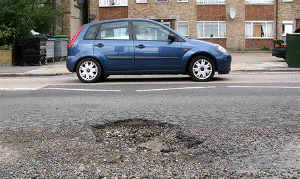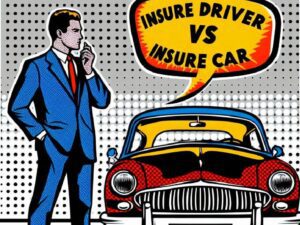How Cheap Sunglasses Can Invalidate Your Insurance

Introduction
Will any sunglasses do?
Driving can be tricky for UK motorists, particularly when glare from the sun reflects.
Tempting as it is to grab a cheap pair of sunglasses to block the glare, you might find yourself with more than just a clearer view.
But did you know you could be fined up to £5,000 and invalidate your insurance simply by wearing the wrong kind of sunglasses?
Let’s dive into the details.
Sunglasses – Understanding The Risks
£5,000 Fine and Penalties
Driving in the UK certainly comes with responsibilities.
For instance, according to the Highway Code, drivers absolutely must not use tinted glasses or visors if they restrict their vision.
Moreover, wearing sunglasses that are too dark or have frames that obstruct your field of vision can easily lead to fines and penalties.
Careless driving fines
To begin with, a £100 on-the-spot fine and up to three penalty points.However, contesting in court? In that case, you could face a court-imposed driving ban and fines of up to £5,000.Invalidating Your Insurance
But that’s not all…
Wearing inappropriate sunglasses doesn’t just carry a fine.
It can also invalidate your insurance.
Recent research found that some motorists have been denied insurance payouts because their vision was impaired by sunglasses that were too dark.
That means if you’re involved in an accident while wearing sunglasses that restrict your vision, your insurer could refuse to pay out.
Looking for more info on insurance options?
Check out our guide to Comprehensive vs Third-Party Car Insurance.
The Highway Code And Tinted Lenses
Under the Highway Code, Rule 237 clearly states:
“You MUST NOT use tinted glasses, lenses, or visors if they restrict your vision.”
This clearly applies to any visibility impairment, including glare from the sun.
Moreover, ignoring this rule could easily result in accusations of careless driving.
If that happens, your car insurance could be voided, and you’d be left with a hefty fine.
But wait, want to know what else can invalidate your insurance?
Check out our blog: What Will Invalidate Your Car Insurance?
Choosing the Right Sunglasses
Sunglasses Categories Explained
To clarify, sunglasses come in four categories, with each indicating how much light they filter out:
Category 0: 80-100% light transmission (clear lenses, not suitable for sun protection)Category 1: 43-80% light transmission (lightly tinted, suitable for low-light conditions)Category 2: 18-43% light transmission (medium tint, ideal for daytime driving)Category 3: 8-18% light transmission (dark tint, suitable for bright sunlight)Category 4: 3-8% light transmission (extremely dark tint, unsuitable for driving)
Most cheap sunglasses fall into categories 3 or 4, making them unsuitable for driving in bright conditions.
Frame Size Matters
Here’s something you might not know:
The frame size of your sunglasses also matters.
Large frames can restrict your field of vision, while tiny fashion glasses often offer too little protection.
Avoid frames that:
Obstruct your peripheral vision.Slide down your nose frequently.Are too large or too small for your face.
Lens Tint and Light Transmission
But wait, there’s more…
The level of light transmission is crucial.
Tinted lenses shouldn’t block more than 43% of light when driving.
Pro tip: For best results, stick to sunglasses in categories 1 or 2 for optimal driving visibility.
Need more tips on finding the best car insurance for you?
Explore Car Insurance Options and choose a plan that suits your needs.
Don’t miss our guide to Telematics Car Insurance to save more on your premiums.
The Importance of Proper Vision Testing
When was the last time you had your vision tested?
Regular eye exams ensure your vision remains clear and your sunglasses prescription is up to date.
A few tips:
Get your vision checked annually, especially if you drive often.Choose polarised lenses to reduce glare.Consider prescription sunglasses if you wear glasses.
Day and Night Eyewear
Selecting the right sunglasses for the time of day is crucial.
Daytime: Use sunglasses with category 1 or 2 lenses.Night: Avoid sunglasses altogether. Instead, opt for clear glasses if needed.
Here’s the thing…
Failing to wear appropriate eyewear can see you fined for careless driving, especially at night.
Avoiding Penalties And Improving Safety
Sunglasses – Know the Law
First things first:
To start with, familiarise yourself with the rules of the road, especially when it comes to eyewear.
The Highway Code is clear on this matter:
Rule 97: Ensure your glasses or contact lenses meet legal standards.Rule 237: Do not use tinted glasses or visors that restrict your vision.
Breaking these rules could result in accusations of careless driving.
Want to know more about avoiding fines?
Read our 5 Ways to Save Money on car insurance.
Check out our Young Drivers Tips for useful advice.
Urgent Tips To Avoid Penalties
Here’s the deal:
Avoid hefty fines and invalidated insurance by following these tips.
Sunglasses Dos:
First and foremost, stick to sunglasses in categories 1 or 2.Additionally, choose polarised lenses to reduce glare.Moreover, wear snug-fitting frames that don’t obstruct vision.
Sunglasses Don’ts:
On the other hand, avoid sunglasses with dark tints (categories 3 and 4).Furthermore, don’t wear tinted lenses at night.Finally, steer clear of frames that obstruct your field of vision.
Need more tips on finding the best car insurance?
Check out our guide to Switch Car Insurance.
Conclusion
In summary, wearing the wrong sunglasses while driving in the UK can lead to fines of up to £5,000 and invalidate your insurance.
Here’s what to remember:
First and foremost, choose sunglasses that don’t obstruct your vision.After that, familiarise yourself with the Highway Code rules on eyewear.Avoid tinted lenses that block more than 43% of light.
Want to explore more ways to stay safe and save on car insurance?
Check out these blogs:
Stay safe on the road!





